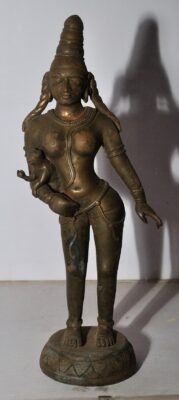 अञ्जना (Añjanā) is the mother of Hanuman, and during the रामायण (Rāmāyaṇa), She was a resident of किष्किन्ध (Kiṣkindhā). But that was not Her eternal abode. In reality, She is the beautiful अप्सरस् (apsaras) named पुञ्जिकस्थला (puñjikasthalā) in Svarga loka.
अञ्जना (Añjanā) is the mother of Hanuman, and during the रामायण (Rāmāyaṇa), She was a resident of किष्किन्ध (Kiṣkindhā). But that was not Her eternal abode. In reality, She is the beautiful अप्सरस् (apsaras) named पुञ्जिकस्थला (puñjikasthalā) in Svarga loka.
Apsaras
The word अप्सरस् [ap-saras] means “going in the waters or between the waters of the clouds” and refers to the celestial waters in the sky. It refers to a class of female divinities (signified by शुक्र or Venus) who inhabit the sky and often visit the earth. They are companions of the divine musicians called गन्धर्व (Gandharva) who are signified by चन्द्र (Moon). True to their watery nature, they can change their forms and shapes at will. They are very fond of water and dwell during rainfall or in watery regions like lakes and rivers.
Apsaras are eternal virgins dedicated to the task of being at the service of the Gods, free from mortal aspirations and limitations and regaining their purity due to the power of jala tattva to purify. Although residing in Svarga Loka which maps to the maṇipura chakra governed by Brahmā they are under the rulership of Indra deva and perform various tasks like testing the chastity of ṛṣi and sages. These beautiful apsaras visited bhū-loka (or even incarnated on earth) to suffer the curses vented upon them by angered Ṛṣi and Devas.
Puñjikasthalā
पुञ्जिकस्थला puñjikasthalā or पुञ्जिकास्तना (puñjikāstanā) is an apsara in Svarga Loka of astounding skill and mesmerising beauty. She caused great disturbance to the mind of Maharṣi Durvāsa when He involved in serious discussions with Indra deva by constantly entering the room and giggling under one pretext or another.
In jyotiṣa, Moon rules mind and causes pregnancy in women. Rudra avatāra Śrī Durvāsa cursed Her to be born on earth as a monkey [dhanus, sg]. When She regretted Her mistake, the sage allowed redeem herself the curse by experiencing motherhood.
Valmiki Ramayana, Kiṣkindhā Kāṇḍa, Sarga 66
विख्याता त्रिषु लोकेषु रूपेणा अप्रतिमा भुवि ।
अभिशापात् अभूत् तात कपित्वे काम रूपिणी ॥ ४-६६-९
vikhyātā triṣu lokeṣu rūpeṇā apratimā bhuvi |
abhiśāpāt abhūt tāta kapitve kāma rūpiṇī || 4-66-9
Śrī Jāmbavanta explains “She who has unparalleled beauty in the three worlds and could change Her form at will, had to take birth as an human-ape [kapi] due to a curse”
दुहिता वानर इन्द्रस्य कुंजरस्य महात्मनः ।
मानुषम् विग्रहम् कृत्वा रूप यौवन शालिनी ॥ ४-६६-१०
duhitā vānara indrasya kuṃjarasya mahātmanaḥ |
mānuṣam vigraham kṛtvā rūpa yauvana śālinī || 4-66-10
Śrī Jāmbavanta continues “She took birth as the daughter of mahātma vānara king Kuṅjara. She assumed a human body which was forever youthful.”
अप्सर अप्सरसाम् श्रेष्ठा विख्याता पुंजिकस्थला ।
अंजना इति परिख्याता पत्नी केसरिणो हरेः ॥ ४-६६-८
apsara apsarasām śreṣṭhā vikhyātā puṃjikasthalā |
aṃjanā iti parikhyātā patnī kesariṇo hareḥ || 4-66-8
Śrī Jāmbavanta teaches “Among the apsaras, Puñjikasthalā is known to be the greatest. She took the name Añjanā and became the wife of Kesari, the mighty monkey-chieftain.”
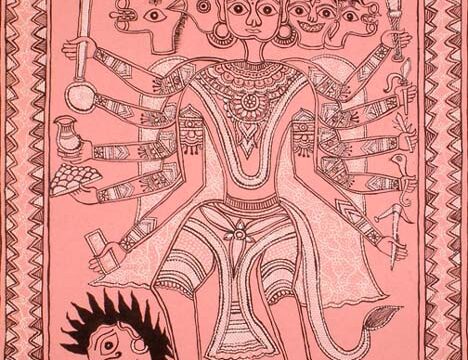
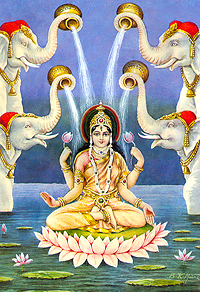
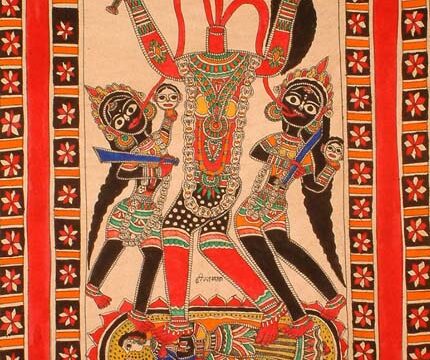

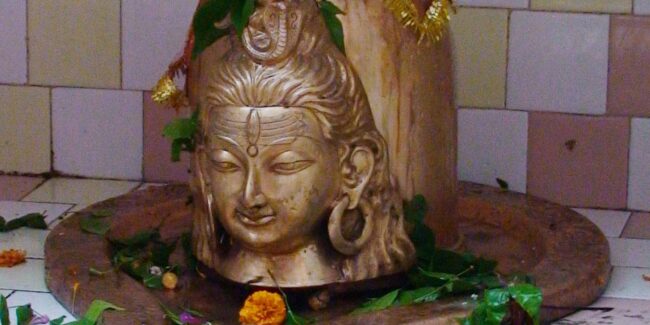
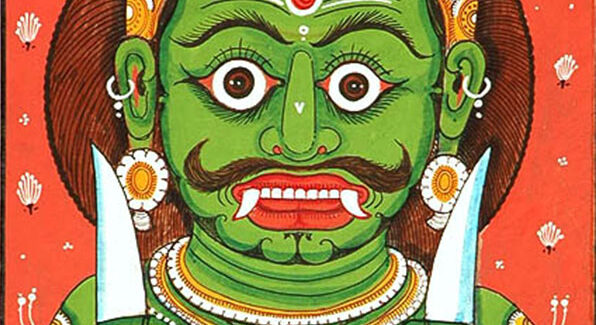
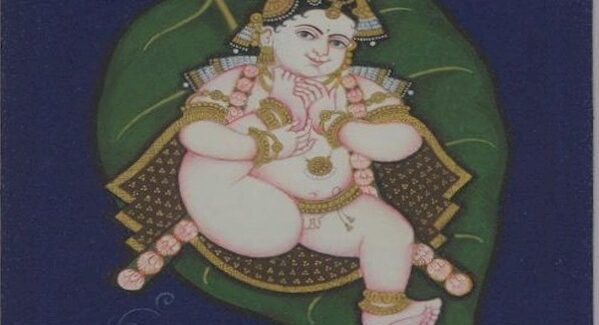
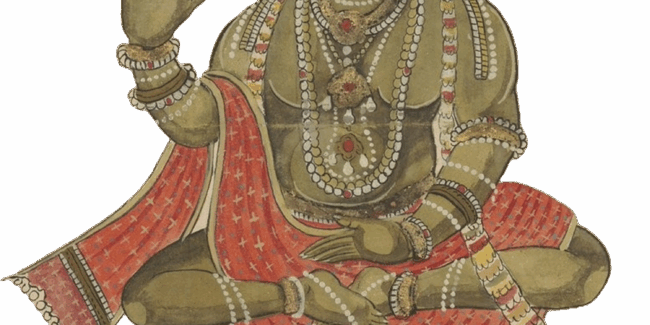
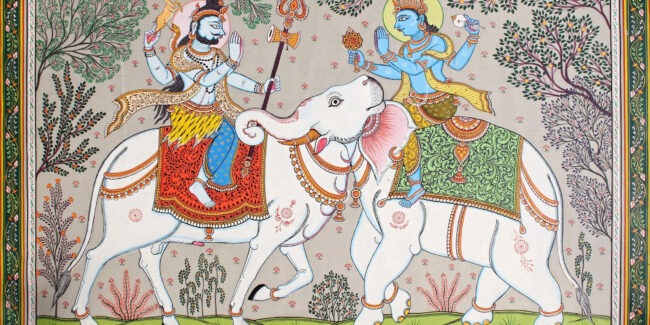
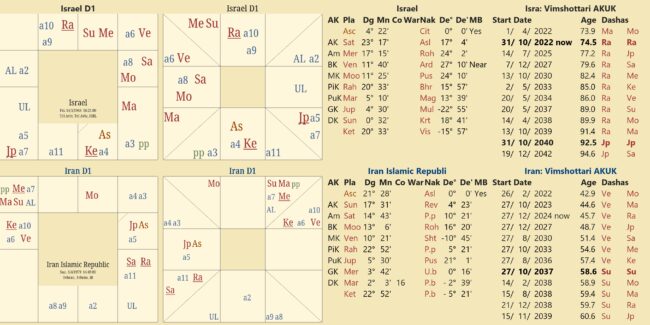

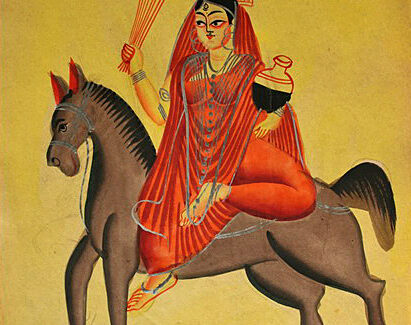
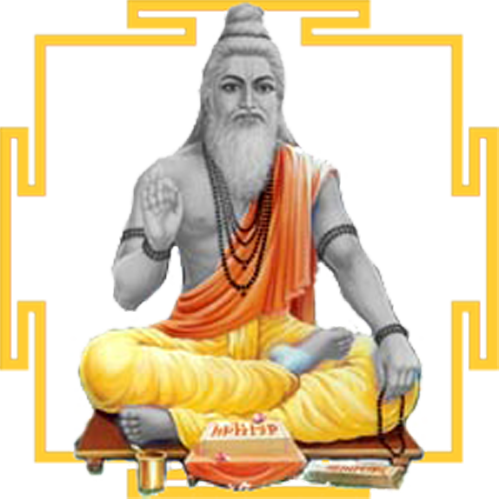 DBC offers online courses in jyotish (Vedic Astrology) taught directly by Sanjay Rath as per the tradition, through narrated power points and other audio tools. The courses are at different levels, from the beginners through the intermediate to the advanced and are known as SoHamsa | DBC courses, with individual classrooms and assistant teachers
DBC offers online courses in jyotish (Vedic Astrology) taught directly by Sanjay Rath as per the tradition, through narrated power points and other audio tools. The courses are at different levels, from the beginners through the intermediate to the advanced and are known as SoHamsa | DBC courses, with individual classrooms and assistant teachers
 Sagittarius Publications is the publisher and distributor the popular quaterly magazine the Jyotish Digest, as well as many thorough books on the subject of Vedic Astrology or Jyotish.
Sagittarius Publications is the publisher and distributor the popular quaterly magazine the Jyotish Digest, as well as many thorough books on the subject of Vedic Astrology or Jyotish. We have an excellent pandit Divākar ‘Deva’ Mishra, who is from the priests of Vindhyāvāsini Siddha Pīṭha to guide you through the hundreds of temples of Kāśi [Varanasi] and neighbouring regions. He can organise your pūjā, keep you safe and take care. He is supported by an English-speaking well-travelled spouse ‘Supriya Mishra’. Please contact them directly for any services, remedial pūjā and tours. They handled the 60+ member Kāśi Jyotiṣa Group 2022.
We have an excellent pandit Divākar ‘Deva’ Mishra, who is from the priests of Vindhyāvāsini Siddha Pīṭha to guide you through the hundreds of temples of Kāśi [Varanasi] and neighbouring regions. He can organise your pūjā, keep you safe and take care. He is supported by an English-speaking well-travelled spouse ‘Supriya Mishra’. Please contact them directly for any services, remedial pūjā and tours. They handled the 60+ member Kāśi Jyotiṣa Group 2022.